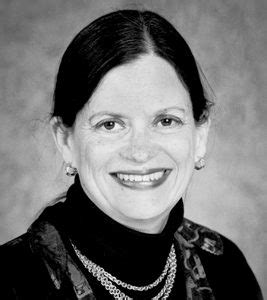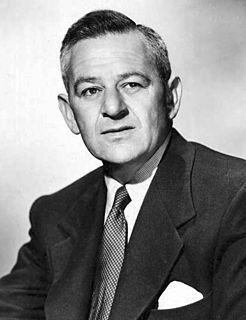A Quote by Charles Sanders Peirce
And what, then, is belief? It is the demi-cadence which closes a musical phrase in the symphony of our intellectual life.
Related Quotes
And I love Jane Austen's use of language too--the way she takes her time to develop a phrase and gives it room to grow, so that these clever, complex statements form slowly and then bloom in my mind. Beethoven does the same thing with his cadence and phrasing and structure. It's a fact: Jane Austen is musical. And so's Yeats. And Wordsworth. All the great writers are musical.
But so many Christians are like deaf people at a concert. They study the programme carefully, believe every statement make in it, speak respectfully of the quality of the music, but only really hear a phrase now and again. So they have no notion at all of the mighty symphony which fills the universe, to which our lives are destined to make their tiny contribution, and which is the self-expression of the Eternal God.
The point of recapitulation in the first movement of the Ninth [Symphony of Beethoven] is one of the most horrifying moments in music, as the carefully prepared cadence is frustrated, damming up energy which finally explodes in the throttling, murderous rage of a rapist incapable of attaining release.
I feel that as a writer and as a performer too. I never really thought about backstory for characters. It was much more of a musical approach: You learn a melody, and then you sing it, I suppose, or you find a rhythm or a cadence that works for the material. And then it's sort of about hitting that note correctly and finding those beats.
Nothing seems to me to be rarer today then genuine hypocrisy. I greatly suspect that this plant finds the mild atmosphere of our culture unendurable. Hypocrisy has its place in the ages of strong belief: in which even when one is compelled to exhibit a different belief one does not abandon the belief one already has.
We must make the building of a free society once more an intellectual adventure, a deed of courage. Unless we can make the philosophic foundations of a free society once more a living intellectual issue, and its implementation a task which challenges the ingenuity and imagination of our liveliest minds, the prospects of freedom are indeed dark. But if we can regain that belief in the power of ideas which was the mark of liberalism at its best, the battle is not lost.
One of our books has been made into a musical, 'The Great American Mousical,' which I directed at the Goodspeed Opera House in Connecticut. And another, 'Simeon's Gift,' has been adapted for a symphony orchestra and five performers. I'm also a very proud member of the board of the Los Angeles Philharmonic.
If all our political and intellectual elite offers by way of a national culture is "pop music, gambling, fashionable clothes or television," then we can neither mount a convincing intellectual defense against our enemies, nor hope to integrate intelligent, inquiring, and unfulfilled Muslim youths young men principally, of course to our way of life.
Philosophy is to be studied, not for the sake of any definite answers to its questions, since no definite answers can, as a rule, be known to be true, but rather for the sake of the questions themselves; because these questions enlarge our conception of what is possible, enrich our intellectual imagination and diminish the dogmatic assurance which closes the mind against speculation; but above all because, through the greatness of the universe which philosophy contemplates, the mind is also rendered great, and becomes capable of that union with the universe which constitutes its highest good.
I started by saying that one of the most fateful errors of our age is the belief that the problem of production has been solved. This illusion, I suggested, is mainly due to our inability to recognize that the modern industrial system, with all its intellectual sophistication, consumes the very basis on which is has been erected. To use the language of the economist, it lives on irreplaceable capital which it cheerfully treats as income.
The point of recapitulation in the first movement of Beethoven's Ninth Symphony unleashes one of the most horrifyingly violent episodes in the history of music....The point is not to hold up Beethoven as exceptionally monstrous. The Ninth Symphony is probably our most compelling articulation in music of the contradictory impulses that have organized patriarchal culture since the Enlightenment. Moreover, within the parameters of his own musical compositions, he may be heard as enacting a critique of narrative obligations that is...devestating.







































